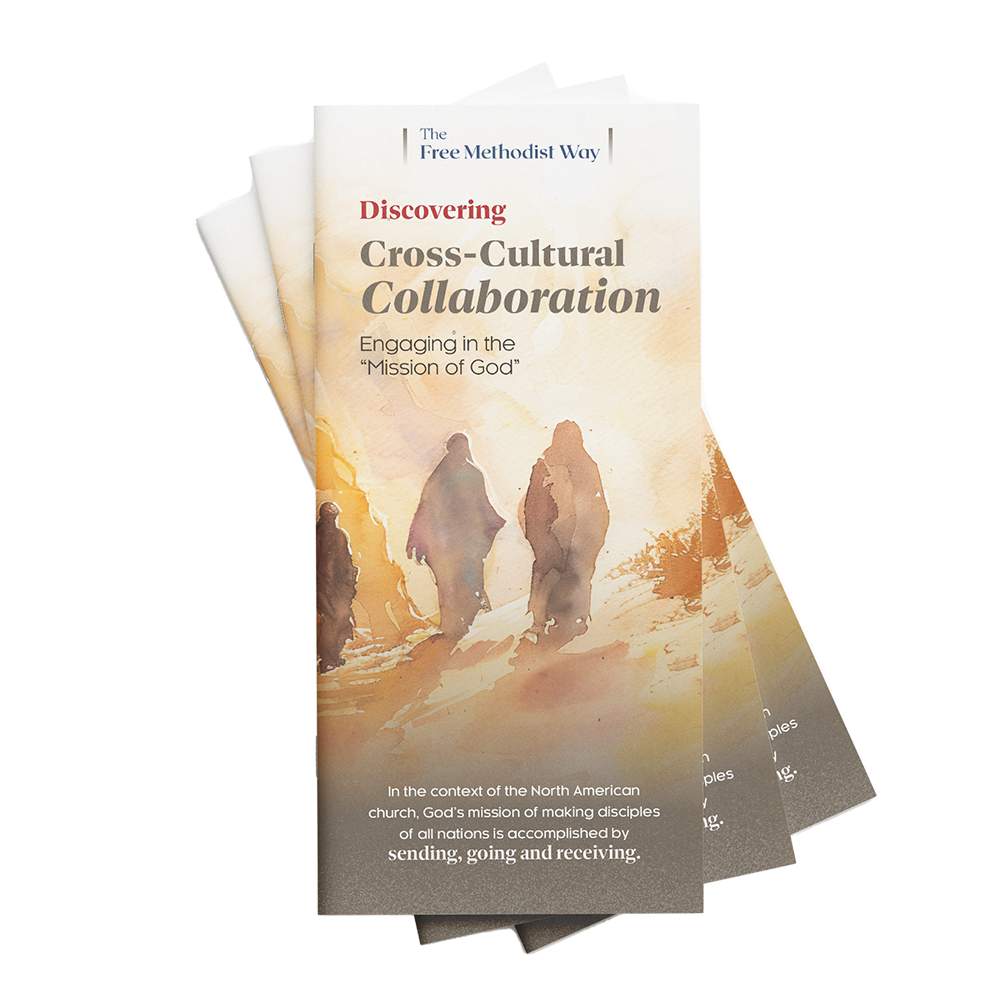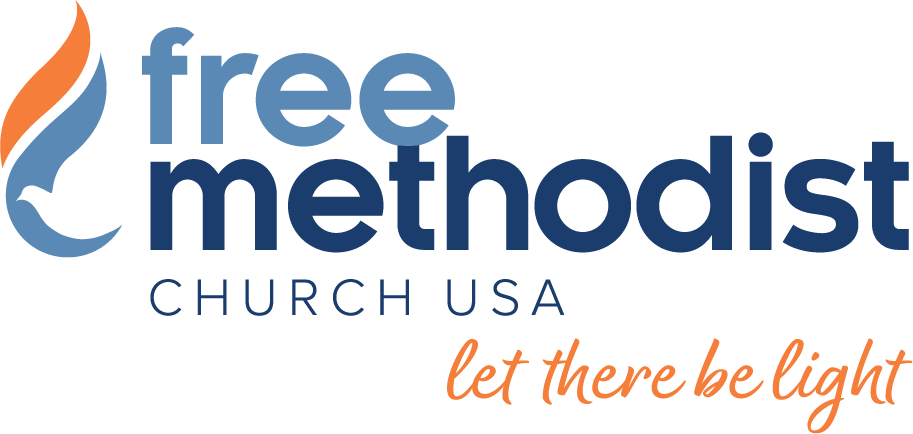Discovering Cross-Cultural Collaboration
by Rev. Gerry Coates, Strategic Catalyst for Cross-Cultural Collaboration and Director of Global Engagement for the FMCUSA
Engaging in the “Mission of God”
God’s mission was fulfilled in the life, passion, death, resurrection and ascension of Jesus. It is under the authority of Jesus the church extends the mission of God to make disciples of every ethnicity. (see Matthew 28:18-20) God is not wanting anyone to perish, but everyone to come to repentance. (2 Peter 3:9). God’s mission from the beginning was expressed to Abraham, “through your offspring all nations on earth will be blessed.” (Genesis 22:18)
In the context of the North American church the mission of God of making disciples of all nations is accomplished by sending, going and receiving.
Sending
In writing to the church in Rome about how all people are included in God’s plan of salvation the Apostle Paul penned the often used Scripture, If you declare with your mouth, “Jesus is Lord,” and believe in your heart that God raised him from the dead, you will be saved.(Romans 10:9) And then few verses later, for, “Everyone who calls on the name of the Lord will be saved.” (Romans 10:13)
He then describes the process for how someone comes to the point of calling on the name of the Lord, How, then, can they call on the one they have not believed in? And how can they believe in the one of whom they have not heard? And how can they hear without someone preaching to them? 1And how can anyone preach unless they are sent? (Romans 10:14-15)
According to Scripture the way someone comes to call on the name of the Lord in whom they believe in for salvation, is for someone to share the good news of Jesus with them. In order for that to happen someone has to go. If someone goes, someone sends.
While most of those living in North America won’t go to the ends of the earth, they can cross the street and they can cross socio-economic and ethnic barriers near home. They can also help send others to places where there is little or no access to the gospel. At the moment of writing this there are 3.4 billion people on the planet who have no access to the gospel. We need to be a sending people.
One of the most effective ways to send is through supporting missionaries within the context of the Free Methodist Way. When you support missionaries through Free Methodist World Missions you know the theological and missiological foundations of their ministry have already been vetted to be in line with the Free Methodist Way. Find out more at www.fmwm.org.
Going.
Jesus sent out His disciples. He sent the twelve. He sent seventy-two. He sends out all His disciples to make disciples. On the night Jesus was raised from the dead he met with disciples. Even though they were behind locked doors because they were afraid of the Jewish leaders, Jesus came and stood among them. Twice Jesus said to them, “Peace be with you.” Then he gave them the mission of God. “As the Father has sent me, I am sending you.”
All disciples of Jesus are sent to make disciples. God sends some to make disciples within their own cultural context. He sends others to cross cultural barriers to bring the good news of Jesus. All can go. All should go. All must go, whether it is across the street or across the world.
To go and make disciples while in North America still means reaching people of all ethnicities. It means reaching across socio-economic barriers which exists in every community. In the Free Methodist Way we have had a special calling to the poor from the days of the founding of our church. Among the poor and needy today includes the new immigrants among us. God has always had a special place in His heart for the poor, the orphans, the widows and the foreigners.
There is an overwhelming need of reaching the 3.4 billion people who have no access to the gospel. Creative missionaries can go into these area doing “business as mission” and share the gospel in one on one relationships as they become part of a new community. You can go across the world if God is calling you. Free Methodist World Missions can help you go where God is leading.
Receiving
One of the most underutilized means of making disciples in North America is in the receiving of people from other cultures. An effectual opportunity to reach those who are in need of Christ is present in many communities in North America simply by reaching the new immigrants. Not only is there an immediate opportunity for them to know Christ, but there also exists and open door to reach back into their country of origin. Receiving immigrants among us is as simple as finding out how to meet their basic needs and sharing life with them.
Things we take for granted, like registering our kids in school, or a doctor’s visit, are all new territory for an immigrant. Even how we drive is brand new to someone from another country. In many countries, the concept of standing in line to wait your turn does not exist. It takes one who will stand alongside of your during the period of transition to make it through. That kind of care is a practical demonstration of the presence of the Holy Spirit and will open doors to share the deep love of God.
From the beginning, God’s intent was to have a people from every nation, culture and ethnicity, united in Christ and commissioned to carry out His work in the world.


These full-color booklets will deepen your desire to live into the values of the Free Methodist Way. Each booklet focuses on various ways you or your small group, leadership board, or ministry team can pursue a life that reflects the values we all share and believe in so deeply. Engage with the values, pray that they will be a reality in your life or the life of your church, and learn more about them from our Strategic Catalysts who authored them.
They are ideal for new members, too, helping them be rooted in the values that define us as we all serve Christ and His Kingdom.
